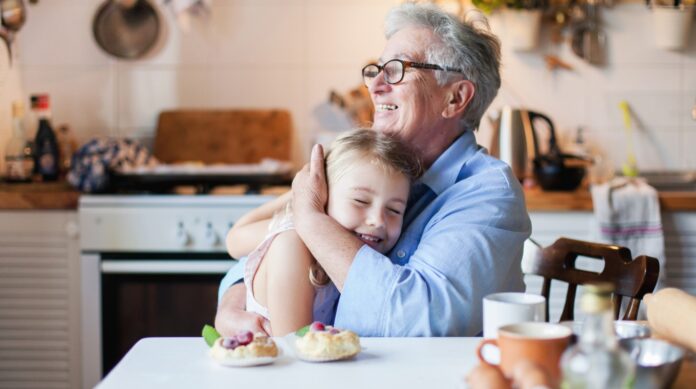Anne Myers-Wright RD/APD
Most of us take eating together for granted but the simple act of sharing a meal is a greater one than we imagine. Food is so much more than just fuel. It’s a fundamental part of our health, relationships, culture and well-being. Eating together is about coming together; about belonging.
No-one likes to eat alone. Sadly, however, it is becoming more and more common for many of us to do so, especially in the UK. At the end of last year, the annual UK National Food and Drink report (2017/18) showed that close to a third of us had eaten alone in the last month.
There will always be times when we are eating alone. If we can, however, it’s better for us to try to minimise those times as much as possible. Eating together has benefits both physically and mentally.
Why we should eat together more
It’s tradition, and it’s basically in our genes
Families have eaten together for as long as they have eaten! In most societies, families celebrate important events by sharing food. Mealtimes have traditionally been those times when whole communities or villages come together. Eating together is a symbol of shared life. It’s part of who we are.
Meal times are for bonding and communication
The dinner table is a place of community. Eating together gives us the opportunity to talk, laugh and share. Taking time out to catch up and talk lets us truly connect. For families, this is an important opportunity to switch off the digital distractions and enjoy each other. Family meals foster a sense of belonging. Research has shown that children who eat regularly with their families feel loved, safe and secure. Even teenagers, despite what we may think, treasure the family eating experience. A US study showed that 71% of teenagers said they consider talking, catching up, and spending time with family members as the best part of family dinners.
Eating together is better for our health and well-being
Regularly eaten meals that are prepared and/or eaten in company tend to be more nutritious and healthier. People who eat meals together have been shown to eat more fruit and vegetables, more dairy and fibre than those who eat alone.
Research suggests that people who eat alone have higher rates of obesity and are at higher risk of developing chronic diseases such as high blood pressure and diabetes. A 2010 study by the University of Bristol found that workers who eat alone at their desk are more likely to gain weight.
Studies suggest that people who eat alone have higher rates of depression. Those who eat regularly with others say they feel happier, are more trusting of the people around them and feel more engaged with their community. In fact, a recent study with the elderly revealed that one in five seniors report that they feel loneliest when eating by themselves.
In order to understand the problem at hand with seniors living in isolation, we have to first ask ourselves what the value of a shared meal is? What is the meaning of the meal? Across generations and cultures it has been proven that sharing a meal with loved ones is one of the best ways to engage in quality conversation, bonding time, and form healthy eating habits. From a young age, when we eat with our family, we are reminded of our meaningful role in our familial structure. This is where we build our sense of self and explore our food palette. It is a time for people to turn off the outside world of work, school, bills, and kids, and focus on each other. There are clear emotional and health benefits. And while sharing family meals is important especially for young children, we crave this connection with others even as we age.
For seniors, who are already predisposed to depression because of isolation, sharing a meal can be what they look forward to each day. Eating a meal alone, especially knowing that your children and their families are together, can be especially difficult. It can be even worse when family or friends don’t prioritize visiting, or live far away so as not to even be an option.
During a pandemic, all of the prior conventions of sharing meals have been thrown into the garbage disposal. Seniors are already a high-risk, compromised population. The act of sharing a meal as we once did with our grandparents is no longer simply hard to schedule, but it is dangerous. How can we let our grandparents or parents feel the love experienced when sharing a meal without risking their health and safety?
Source: https://www.amdietetics.com/articles/the-importance-of-eating-together




